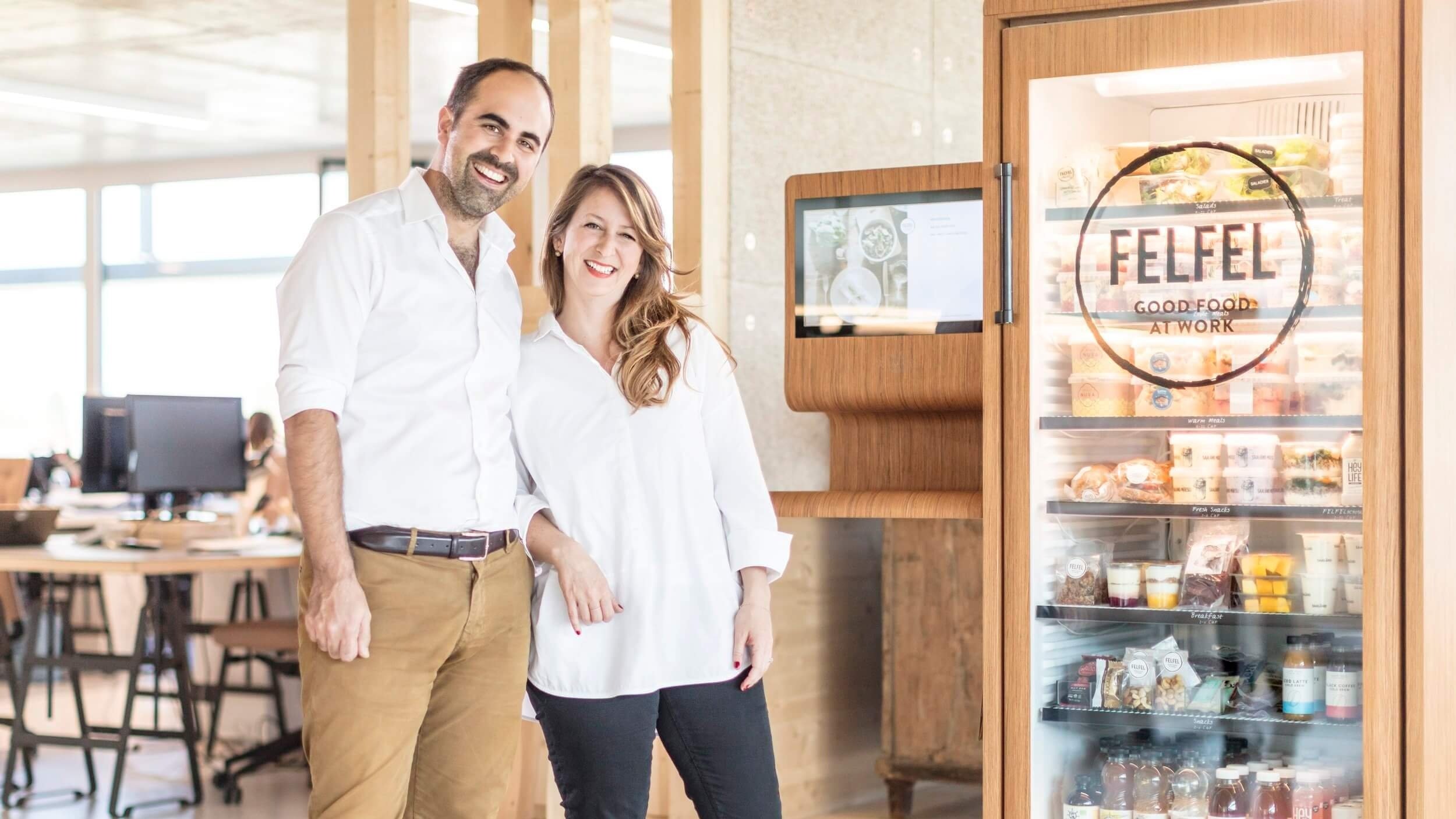A Smart Fridge? Why This Company Says It Could Help Employees Fall in Love With the Office Again
Being forced back to the office may not be so bad if your company’s smart fridge delivers up healthy, delicious food, sometimes at a half-price discount.
By Kit EatonIt’s fair to say that not all return-to-office (RTO) schemes are going well. Federal staff are finding roach problems, discovering they don’t have desks, and lack basic facilities like the internet. Amazon’s main office RTO has upset commuter patterns across the Seattle area for everyone else. Many company policies are also deeply unpopular, with data showing nearly half of workers are prepared to look for a new job if their company forces a return to a five-day, in-office workweek. But one company, Felfel, busy expanding across the U.S., thinks it has a solution to unpopular RTOs: a smart fridge full of luxury foodstuffs.
The idea is simple, and borrows from the heady early internet era, when companies like Google offered lavish, fun perks to in-office staff—but while Google and other tech companies offered free food, staff do have to pay for Felfel’s products, though some employers subsidize the cost. The attractive part of this is that Felfel’s fridges are filled with “with fresh food that’s created by the best chefs, restaurants, and catering companies in Manhattan and Brooklyn,” the Swiss company’s U.S. boss, Dave Phillips, explained to industry news site WorkLife. There’s no junk food in these fridges, or any sorry, half-eaten containers of yogurt sporting notes saying “Property of Steve.”
Instead, it’s as “fresh as if you walked across the street and got it,” Phillips said. The food choices are all health-centric. And to boost the attractiveness of the whole experience, the fridges are custom designed to client companies’ needs, and, as WorkLife notes, they’re more like a “custom furniture feature than a workaday kitchen appliance.”
The smart fridge angle is where it gets interesting: The company tracks statistics from every location, right down to daily sales and the carbon impact of each meal. This lets it deliver a cleverly tailored food option, where an algorithm learns each employee’s habits, and also optimizes the fridge’s stock deliveries so there’s always the correct mix of products available. The company says about half its clients subsidize the cost of the food provided, which adds to the appeal to employees—even if it might add to the steep $1,000-a-week service bill.
But, as WorkLife notes, the smart, good-looking fridges are a way for companies to boost the attractiveness of working in the office instead of at home, and clients typically site them near common areas, with a goal of creating “gathering spots.” The old water cooler camaraderie effectively gets a boost from the smart fridge, which can also boost employee team spirit and the chance to make work friends—a trend that reports say is, sadly, on the decline.
Smart, 21st-century office refreshment dispensers seem to be a new thing: Sleek water cooler systems from Boston-based Bevi share a lot of the design thinking that Felfel’s fridges do. More like an advanced Apple product than an old-fashioned, drippy, and damp cooler with the classic inverted plastic bottle on top, Bevi’s water coolers deliver filtered tap water and, at the touch of a switch, can deliver water at different temperatures, with or without bubbles, any one of 14 natural flavors, a caffeine dose, electrolytes, or vitamin additives. It’s like nothing you’d have at home, and reports say that workers are big fans of this thirst-quenching office perk.
Felfel’s Phillips told WorkLife that while part of the attraction for the fridges in the current RTO climate is that they can boost workers’ sharing lunch together, which “fosters a kind of collaboration that you just can’t have if you’re not in the office working together”—a line that seems tailor-made to please strict RTO supporters like JPMorgan CEO Jamie Dimon and Amazon CEO Andy Jassy. “It’s not just about the food; it’s about creating those moments that turn colleagues into teams and offices into communities,” Phillips said.
It’s worth noting, though, that even Bevi, with its smart water dispensing system, is sticking with a hybrid work approach.
Read the full article here.

